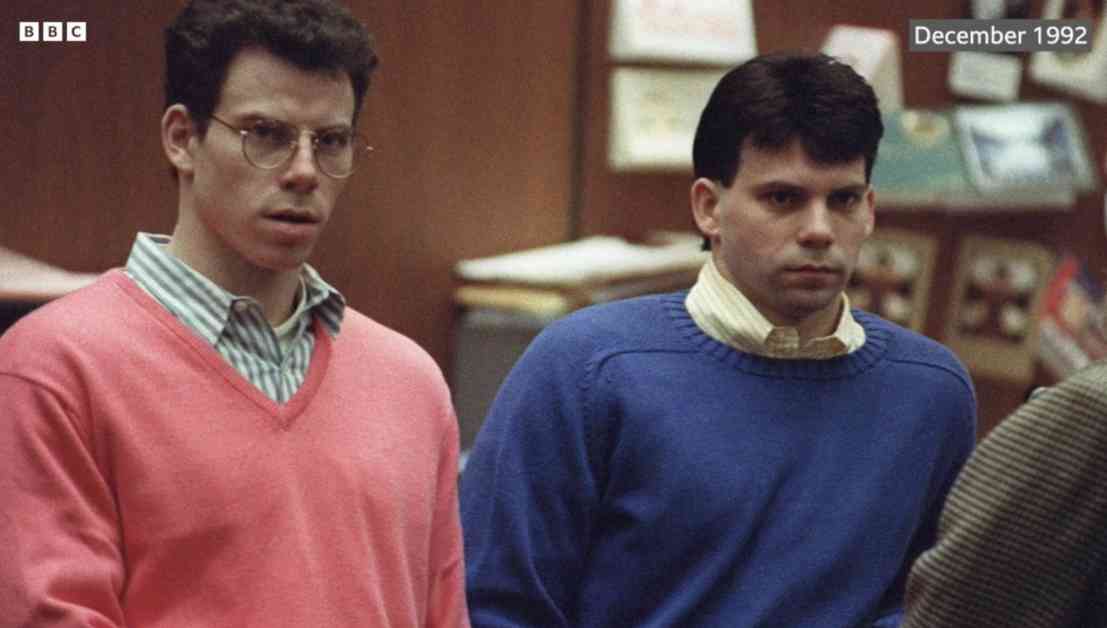The Menendez brothers, Erik and Lyle, who were convicted of murdering their parents in Beverly Hills in 1996, are now facing the possibility of being resentenced after more than 30 years in prison. The Los Angeles County District Attorney, George Gascón, has filed a petition to reduce their sentences to 50 years to life, making them eligible for parole. This decision has stirred public interest in this notorious case once again.
The recent petition by Gascón’s office opens up the potential for the Menendez brothers to appear before a parole board and prove their readiness to re-enter society. The court will have to consider if they qualify for parole under California’s “youth offender” law, given that they were under 26 years old when they committed the murders.
The case has seen a resurgence of attention due to new evidence and changing perspectives on abuse victims. Testimonies and documents, including a letter written by Erik Menendez to his cousin detailing ongoing abuse from his father, have shed light on the brothers’ experiences leading up to the crime. Advocates, including celebrities like Kim Kardashian, have voiced support for their release, emphasizing the importance of understanding trauma and its impact on behavior.
However, not all family members agree on the issue of release. While some relatives advocate for the brothers’ freedom, others, like Kitty Menendez’s brother, remain steadfast in their belief that they should stay behind bars. The family’s differing opinions reflect a broader societal divide on whether the brothers deserve a second chance or not.
Despite the controversy surrounding their case, the Menendez brothers have been actively involved in rehabilitation efforts during their imprisonment. They have participated in programs to assist other inmates and have pursued educational opportunities to better themselves. Their contributions have been acknowledged by prison officials, highlighting their commitment to personal growth and change.
The legal process for the Menendez brothers is still ongoing, with a resentencing hearing expected to take place within the next few months. If the judge approves the resentencing, the parole board will then determine if they are ready for parole. However, California Governor Gavin Newsom could potentially intervene and block their release, adding another layer of uncertainty to their path to freedom.
The Menendez case, which captured national attention in the 1990s, has once again become a focal point in the media. Documentaries and series have reignited interest in the case, prompting discussions about privilege, mental health, and the justice system. High-profile figures advocating for the brothers’ release have brought new perspectives to the forefront, challenging societal views on rehabilitation and second chances.
As the legal proceedings continue, the fate of the Menendez brothers remains uncertain, with their potential release hanging in the balance. The evolving narrative surrounding their case underscores the complexities of justice, forgiveness, and the possibility of redemption, leaving the public to ponder the question of whether they have truly paid their debt to society.













